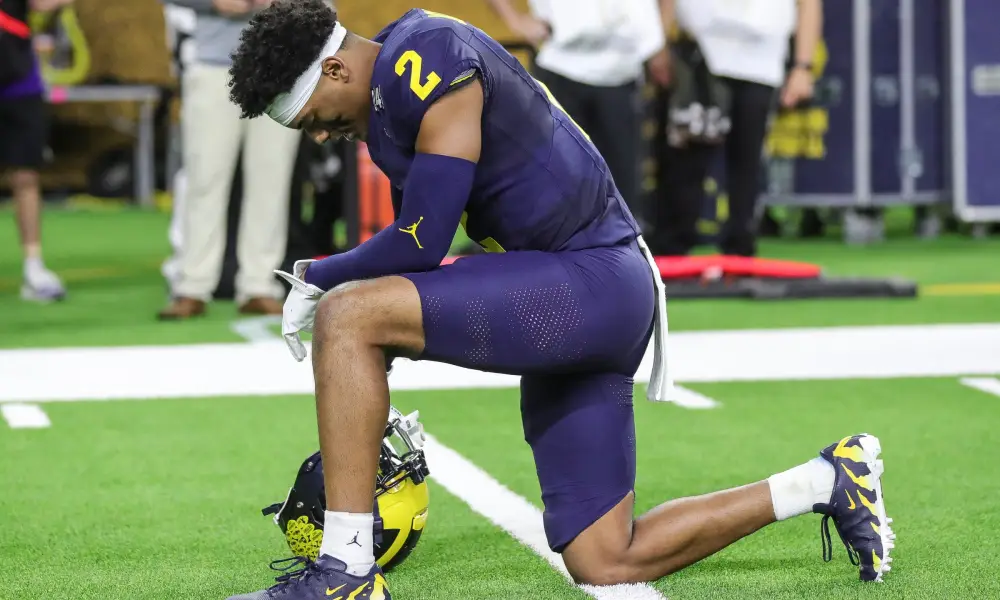In a surprising turn of events, a Michigan Wolverines football player recently had an emotional breakdown during training, exclaiming, “I’m done. I can’t take this anymore.” This outburst has brought attention to the immense pressure and demands placed on college athletes, particularly within a program as prestigious and competitive as Michigan’s.
The identity of the player has not been disclosed, but sources indicate that the individual has been struggling with the intense physical and mental demands of the team’s rigorous training schedule. Under the leadership of head coach Jim Harbaugh, the Wolverines are known for their challenging practices designed to prepare the team for their high-stakes season. With games against formidable opponents such as Fresno State, Texas, and USC on the horizon, the pressure on each player to perform at their peak is substantial.
This incident sheds light on the broader issue of mental health in sports. The high expectations and relentless pursuit of excellence can take a toll on athletes, leading to moments of vulnerability and emotional distress. It underscores the need for robust support systems within sports programs to help athletes manage stress and maintain their mental well-being.
The University of Michigan does provide mental health resources for its athletes, but this episode suggests that there may be a need for further enhancement of these supports. Ensuring that athletes have access to counseling, stress management programs, and a supportive environment is crucial for their overall health and performance.
The player’s cry for help is a poignant reminder that behind the physical prowess and competitive spirit of college athletes, there are individuals who also experience fear, anxiety, and emotional struggles. Addressing these issues head-on and fostering a culture of openness and support can help mitigate the negative impacts of stress and pressure in collegiate sports. As the Wolverines continue their preparations for the season, this incident may serve as a catalyst for positive change in how mental health is approached within the team and the broader athletic community.

Leave a Reply